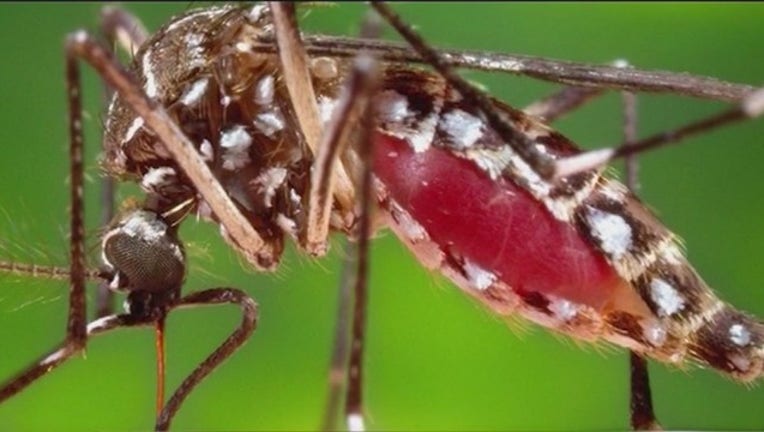Florida mosquitoes being tested for Zika

MIAMI (AP) - Florida health officials have trapped mosquitoes in an area of Miami-Dade County and are testing them for Zika to confirm whether a woman with the virus could be the first person infected directly by a mosquito bite in the continental United States.
Florida's Department of Health and the U.S. Centers for Disease Control and Prevention did not immediately respond to questions about their investigation, but health officials said the case had no apparent connection to travel outside the country.
The patient is a woman who lives in Miami-Dade County, according to a health official familiar with the case who wasn't authorized to reveal details beyond the statements of the agencies involved, and thus spoke on condition of anonymity.
"Mosquitos have been trapped in the area of investigation and are being tested," Health Department spokeswoman Mara Gambineri said in an email Wednesday to The Associated Press.
More than 1,300 Zika infections have been reported in the U.S., none involving bites from local mosquitoes; 14 of these were sexually transmitted, and one lab worker was stuck with a contaminated needle.
Health officials predicted that would change this summer once the virus reaches U.S. mosquitoes and have mobilized to keep Zika from spreading beyond isolated clusters of cases.
Miami-Dade County has the most confirmed infections in Florida — 89 — but so far all have involved someone who traveled outside the U.S. mainland to areas with Zika outbreaks, such as Latin America and the Caribbean.
The White House said in a news release Wednesday that President Barack Obama had spoken by phone with Florida Gov. Rick Scott regarding the new Zika case. The president noted during the call that besides the $2 million the CDC already provided to Florida, the agency anticipates awarding Florida another $5.6 million in Zika funding through a grant this week.
According to a CDC response plan, health officials would want to see more than just one unexplained case before declaring that someone has been infected by a mosquito bite in the continental United States.
The plan suggests there should be two or more cases within a 1-mile area in people who do not live together, who did not have sex with Zika-infected people and who did not recently travel to countries with Zika outbreaks.
Evidence of the virus in mosquitoes captured in the same areas also might help investigators declare Zika is spreading, but short of that, it might be difficult to determine with certainty that mosquito transmission has occurred.
Mosquito control inspectors in Miami have been going door-to-door in the area of investigation since health authorities alerted them late last week to the woman's infection. They've been spraying to kill mosquitoes and emptying containers of the water mosquitoes need to breed. If the virus is there, they want to prevent its spread.
"We're constantly in the area. We're doing hand-held spraying, and we'll do more truck spraying Thursday," said Gayle Love, a spokeswoman for Miami-Dade County Solid Waste Management.
Crews in Utah, meanwhile, are setting traps in old tires and junkyards and dumping mosquito-eating fish into ponds and abandoned pools after a man who cared for his dying father was infected with Zika as well. Since that case doesn't involve travel or sex, it has raised more questions about how the virus might spread.
"Our best option is to try to find these mosquitoes quickly so that way we can eliminate them prior to their establishment," said Ary Faraji, manager of the Salt Lake City Mosquito Abatement District. "Once they become established, it is extremely difficult to get rid of those species."
There is no vaccine for Zika. The main defense is to avoid mosquito bites. Zika also can spread through unprotected sex with someone who is infected.
In most people, Zika causes only a mild and brief illness, but it can provoke fetal death and severe brain defects in the children of women infected during pregnancy.
Health officials worldwide have advised people preparing to have children not to travel to areas where the risk of Zika is high. But these and other warnings have applied to countries and regions where outbreaks have spread far and wide.
It remains to be seen how many Zika infections would have to be confirmed in an area before state or federal officials issue similar warnings for parts of the U.S. mainland.
___
Associated Press writers Mike Stobbe in New York and Brady McCombs in Salt Lake City contributed to this report.

